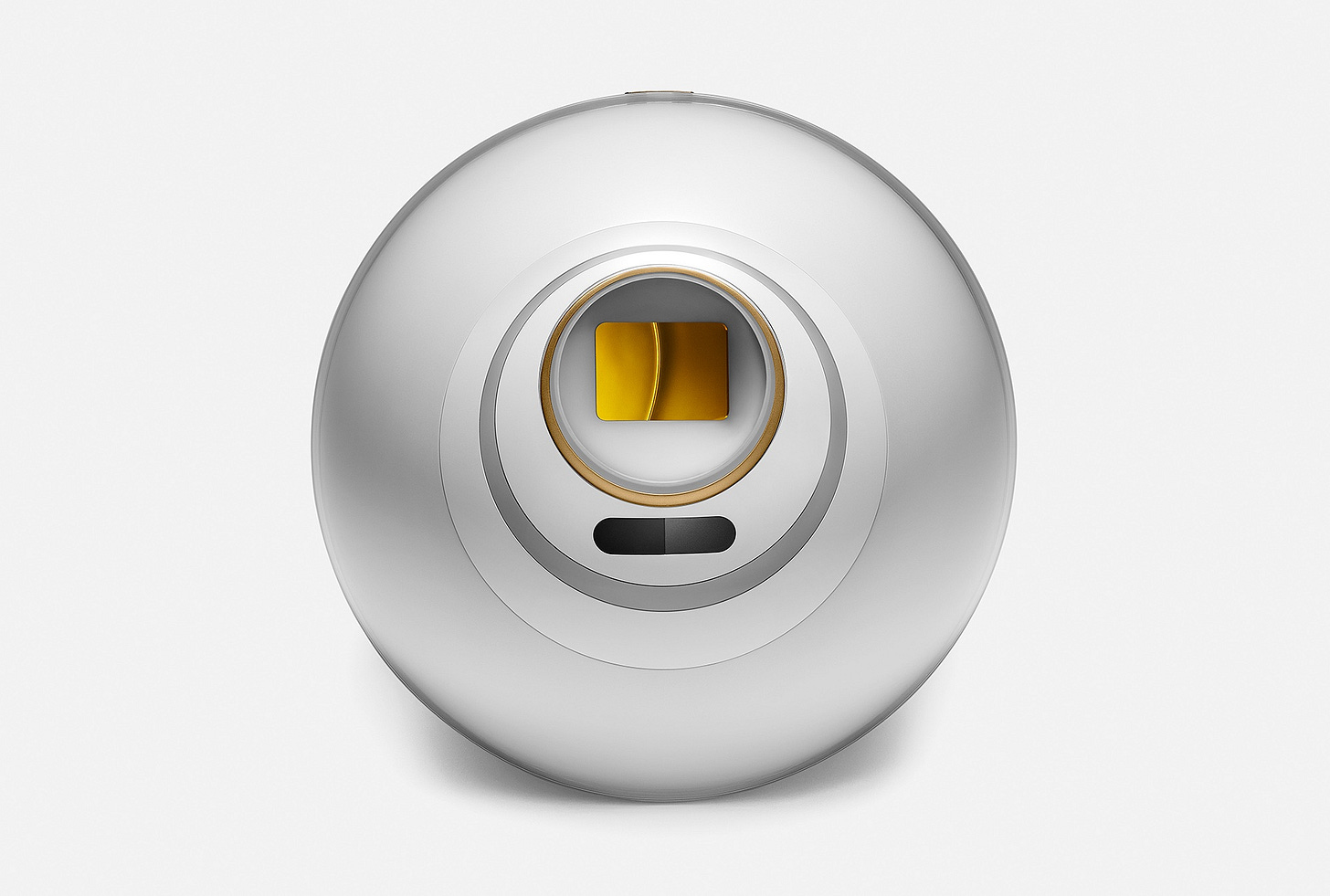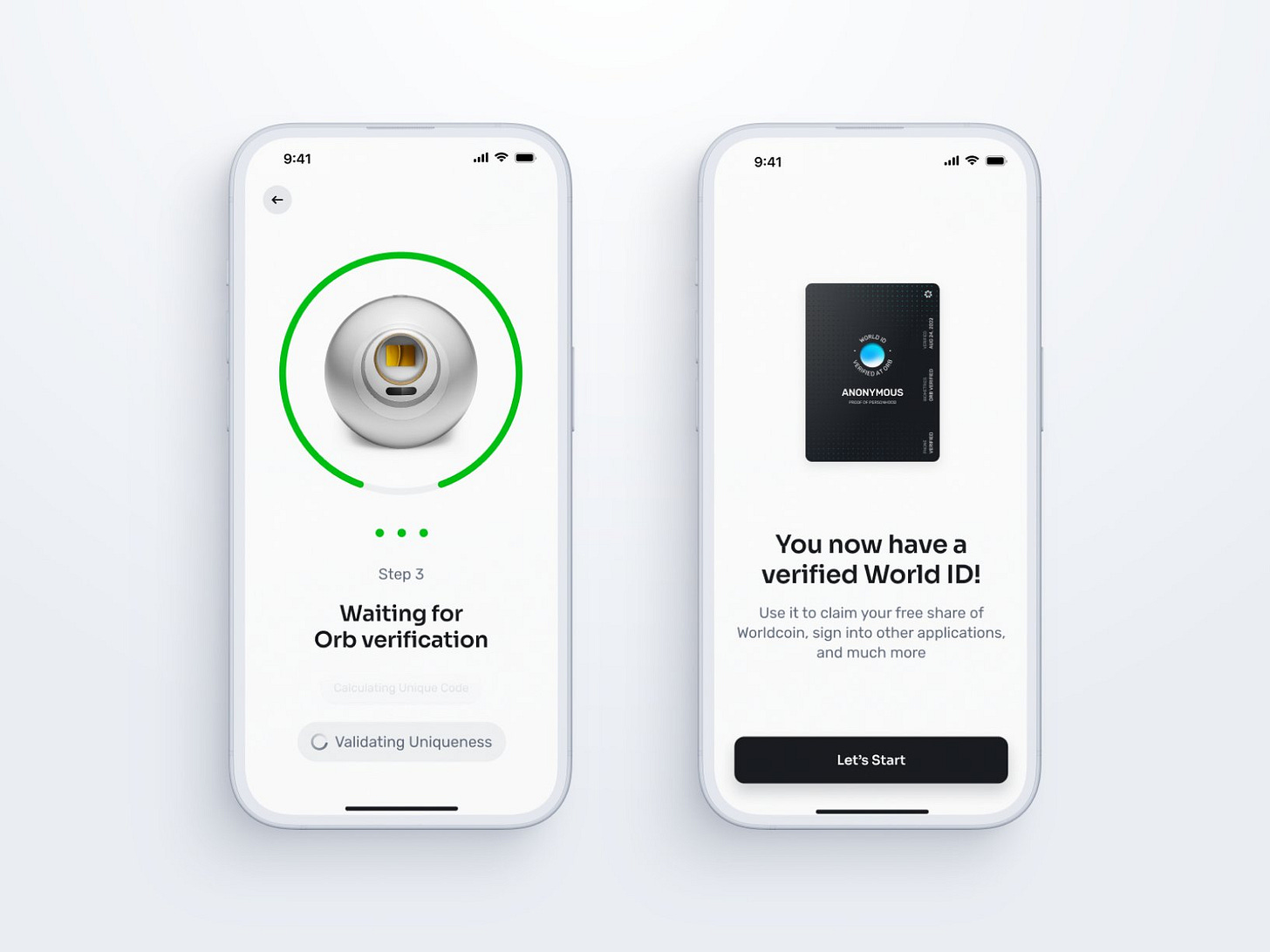Worldcoin is coming
and It'll probably be the biggest Crypto application yet
Worldcoin is a new identity-based verification system that enables you to prove to others on the internet that you are a unique human being. This is done by physically going to a location, sitting down and getting your eye scanned by a giant orb.
If you get your eye scanned by this orb, you are given a WorldID and some tokens named WorldCoin.
What?
You might be thinking, "No one is going to do this. Who wants to scan their eyeball and have it stored on some data server somewhere?"
Well, 1.7 million people have already done so.
To put that number into perspective, 2.7 million wallets have signed up for Opensea, and 6 million unique wallets have used Arbitrum. However, the actual number of real unique humans controlling these wallets is certainly far lower.
From a crypto application point of view, it’s probably already the biggest unique user onboarding mechanism we’ve had since NFTs and Memecoins, and it hasn't even fully launched yet.
It's also important to note that when the token launches, it will be distributed onto Optimism, which will almost immediately double the number of users Optimism has from this one application alone.
But more importantly, it will onboard millions of new users to the EVM and ETH ecosystem. This helps solidify Ethereum as the base layer and distributed ledger not just for economic transactions, but also for the storage layer of human identity.
Okay, so some people have started using it, but how do we end up in a world where almost everyone is using it?
Cobie once said, "The only scarce resource in crypto is attention."
And WorldCoin is primed to grab more attention than anything we’ve ever seen in this space.
Why will WorldCoin capture the attention of everyone?
This is one of the rare examples I can think of where you have a number of narratives all colliding simultaneously, coupled with it being one of the most memeable innovations of all time.
It’s literally a creepy orb designed to scan your iris to prove you are a human being and provide you with a World ID.
This is the stuff of sci-fi novels. The strangeness of this idea alone is enough for it to capture news headlines around the world. It creates a visceral reaction in many people when they first think about the idea.
The founder (Sam Altman) is currently one of the main characters, not just in crypto, but in the whole world.
If it was just me and a bunch of nerds making this creepy orb in my shed, it might get a few headlines, but it wouldn’t spread like wildfire around the globe. However, when you have the founder of OpenAI launching an eye-scanning orb and discussing issuing UBI using it, and solving personhood, it’s going to get continual and lasting news coverage.
The AI debate is going to get louder.
If you’ve spent any time on the internet recently, you’ve probably stumbled upon AI-generated images, listened to AI Kanye West sing "Sweet Home Alabama," or played around with Chat GPT. AI is getting very good, very fast. It won’t be long until it’s basically impossible to distinguish between humans and AIs online, and the debate around how we solve this will increase rapidly. WorldCoin will be part of that debate.
This is a great topic to have a culture war around.
Next year is an election year. What do election years love to create? Chaos, polarisation, and an "us vs them" mentality. We’ve seen extremes of this over the past years, with masks and vaccines, all the way through to political leaders accusing elections of being rigged. I can foresee a world where scanning your iris to prove you are a human becomes a political issue that one side loves and the other despises. Or maybe the losing party blames the election loss on AI bots infiltrating social media and calls for proof of personhood to be amplified.
The franchise model incentivises a distributed network of individuals to sign new users up.
Orb owners are paid a share of WorldCoin tokens for each new user that scans their eyeballs. New users are given an airdrop of WorldCoin. This is like Herbalife's distant cousin, but that distant cousin has spent its entire life on steroids, bioengineered from birth perfectly to hook in as many new users as possible.
So looking at it holistically, you have one of the most powerful main characters on Earth launching a new token, using the most memeable technology ever created at a time when the world is likely to be the most polarised about AI.
You’ll have top-down viral marketing in the form of news headlines and political debates, coupled with bottom-up marketing in the form of Twitter user outrage and local influencer Orb operators earning good money encouraging sign-ups.
And you get given free money if you sign up.
Regardless of what you think about this project from a moral or ethical standpoint, the truth is it doesn’t really matter. It is launching, it’s coming, and we will probably see a lot more things like this as AI continues to grow.
Okay, you’ve explained how this thing gets attention, but how does that lead to more people scanning their eyeballs?
If we start to think through the game theory of what might happen once WorldCoin becomes a viable thing to use across the world, there are a few potential decisions users will have to make.
Many people initially won't want to scan their eyeballs to get free money because it's weird. BUT, they will be feeling FOMO from hearing about it all the time, as we highlighted above in the attention discussion.
So their options are either:
Ignore it and do something else.
Capitulate and go to the eye-scanning center.
Buy some WorldCoin tokens to join in the fun.
If more people choose option three than one and two, then a flywheel gets created. The more people that buy, the more the WorldCoin price goes up. This leads to option two becoming a more attractive decision because the monetary gain for scanning your eyes becomes greater.
The more people scan their eyes, the more socially acceptable it becomes, and the Overton window begins to shift.
In this scenario, we move from WorldCoin being viewed as a creepy dystopia to an uncomfortable but morally/socially/economically justifiable decision. Similar to handing over your fingerprints when you go through USA customs or holding up your passport to the camera to open a Binance account, it feels weird and creepy, but you need to do it to enter the country or gamble your life savings on memecoins, so you do it anyway.
The more people that have gone through this process and have a World ID the easier it becomes for social media sites to require it for a verification tick. Proving that you are a unique human being controlling the page, and not one of a trillion AI robots programmed to spread disinformation and cause chaos.
Taking the thought experiment to the extreme, I can even see a world where social media sites themselves become WorldCoin franchises and encourage users to sign up via them to gain their own share of the tokens. Although it’s also likely that they’d try to create their own verification orbs first, so the jury's out on whether this option is likely or not.
Overall, though, if you squint hard enough, you can see a future where a large majority of internet users do have some kind of World ID. The question becomes one that's impossible to answer for now:
Will WorldCoin be the one that wins?






